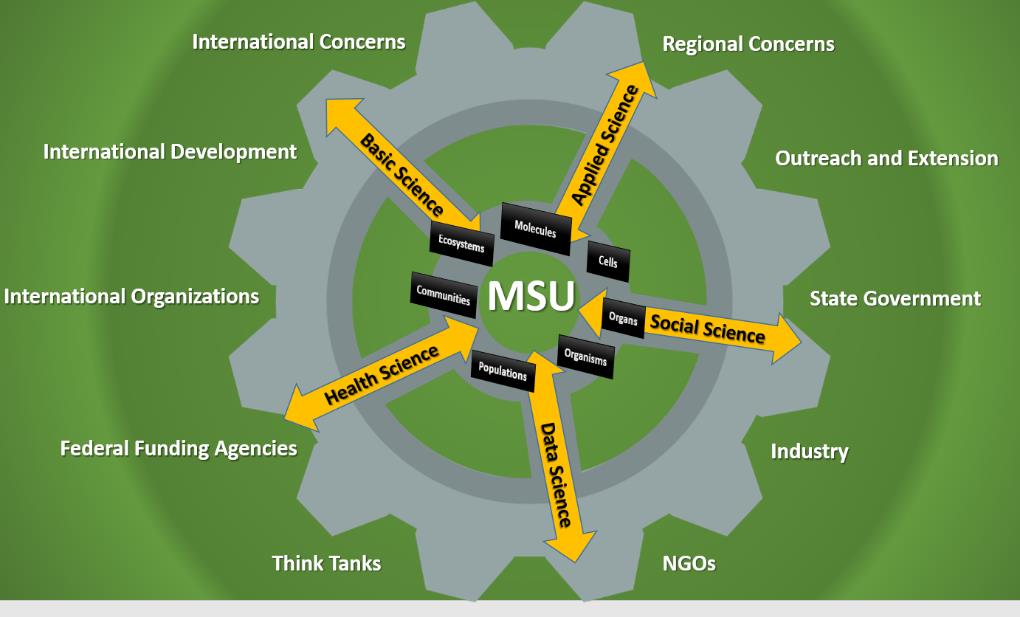About
The MSU Center for PFAS Research aims to assist with the development of PFAS standards, establish a center for development of green chemistry and remediation technologies, and provide a collaboration hub for academic, public health, state, federal and industry research surrounding PFAS and emerging contaminants.
To accomplish our goals, the center has six primary focus areas:
- Health Impacts: Researchers will develop a framework that assesses the impact of PFAS on the health of humans and wild and domesticated plants and animals.
- Environmental Monitoring/Modeling: Researchers will develop strategies for monitoring and predicting the bioactivity or effects of PFAS contaminants in our nation’s waterways, soils, and air.
- Discovery and Measurement: Researchers will develop and apply analytical methods for discovering and measuring PFAS in water, vegetables, fruits, other foods, consumer products, and soils.
- Agricultural Impacts: Researchers will investigate the transport and uptake of PFAS from the soil into agricultural crops and estimate exposure for humans and livestock.
- Risk Assessment and Risk Management - Communication and Governance: The Center will advance social scientific inquiry by further assessing what types of information and levels of certainty decision makers require in order to make risk-reducing interventions in complex systems. The risk assessments will be used to inform multiple levels of risk management, including:
- Identifying priorities for future research based on existing knowledge gaps
- Establishing criteria and standards for remediation of contaminated sites
- Proposing comparative benchmarks for the development of alternatives to PFAS
- Risk communication strategies and materials for communities
- Analysis of policy effectiveness
- Risk Assessment and Risk Management - Remediation and Development of Alternatives: Researchers are developing methods of PFAS remediation, as well as alternatives to PFAS.




 Print
Print Email
Email